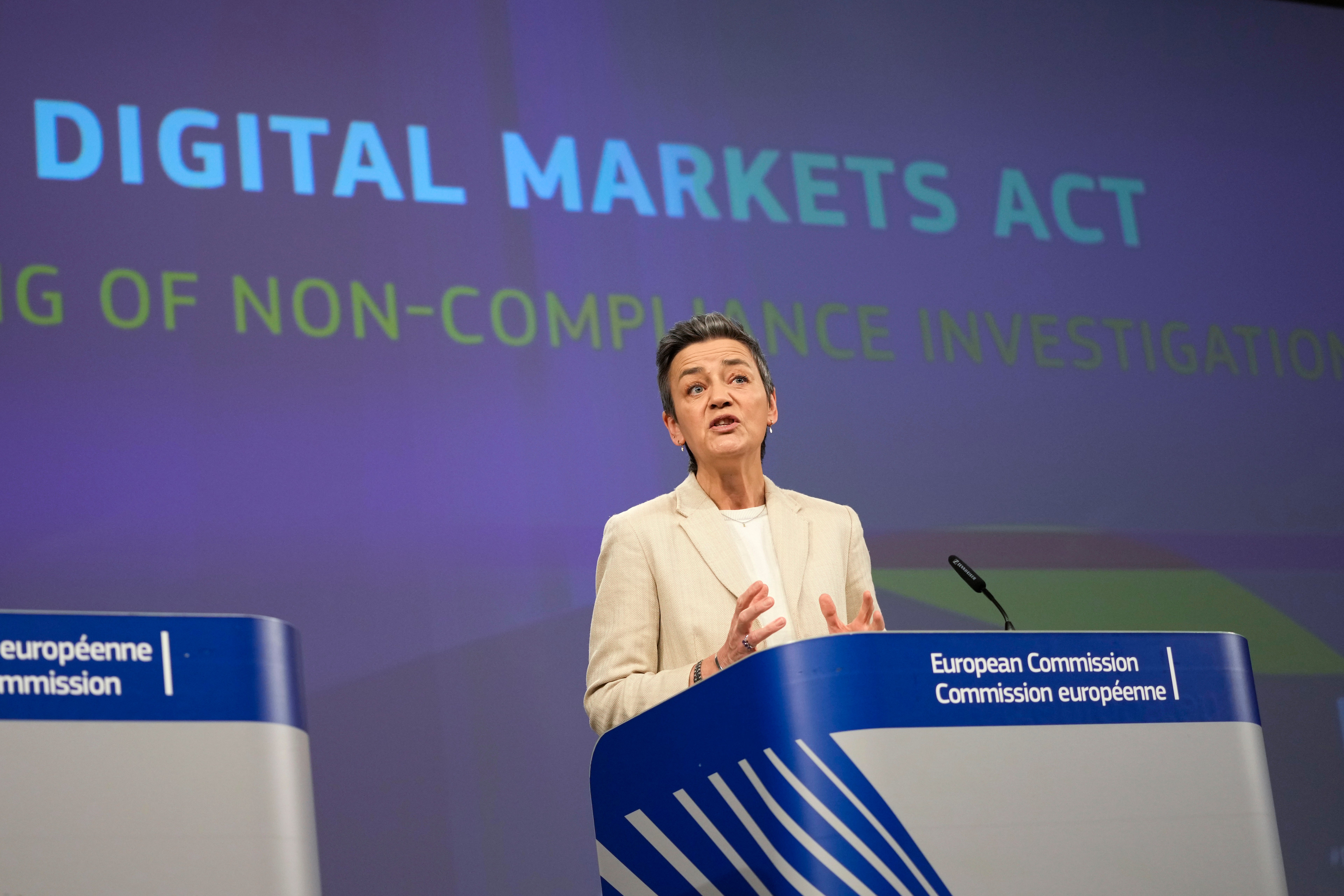European Union accuses Facebook owner Meta of breaking digital rules with paid ad-free option
European Union regulators have accused social media company Meta Platforms of breaching the bloc’s new digital competition rulebook by forcing Facebook and Instagram users to choose between seeing ads or paying to avoid them

Your support helps us to tell the story
From reproductive rights to climate change to Big Tech, The Independent is on the ground when the story is developing. Whether it's investigating the financials of Elon Musk's pro-Trump PAC or producing our latest documentary, 'The A Word', which shines a light on the American women fighting for reproductive rights, we know how important it is to parse out the facts from the messaging.
At such a critical moment in US history, we need reporters on the ground. Your donation allows us to keep sending journalists to speak to both sides of the story.
The Independent is trusted by Americans across the entire political spectrum. And unlike many other quality news outlets, we choose not to lock Americans out of our reporting and analysis with paywalls. We believe quality journalism should be available to everyone, paid for by those who can afford it.
Your support makes all the difference.European Union regulators accused social media company Meta Platforms on Monday of breaching the bloc's new digital competition rulebook by forcing Facebook and Instagram users to choose between seeing ads or paying to avoid them.
Meta has been giving European users the option since November of paying for ad-free versions of Facebook and Instagram as a way to comply with the continent’s strict data privacy rules.
Desktop browser users can pay about 10 euros ($10.50) a month while iOS or Android users will pay roughly 13 euros to avoid being targeted by ads based on their personal data.
The U.S. tech giant rolled out the subscription option after the European Union’s top court ruled that under strict EU data privacy rules, Meta must first get consent before showing ads to users.
The European Commission, the EU's executive arm, said preliminary findings of its investigation show that Meta's “pay or consent” advertising model was in breach of the 27-nation bloc’s Digital Markets Act.
The commission said Meta's model doesn't allow users to exercise their right to “freely consent” to allowing their personal data to be used to target them with online ads.
The commission had opened its investigation shortly after the rulebook, also known as the DMA, took effect in March. It's a sweeping set of regulations aimed at preventing tech “gatekeepers” from cornering digital markets under threat of heavy financial penalties.
“The DMA is there to give back to the users the power to decide how their data is used and ensure innovative companies can compete on equal footing with tech giants on data access,” European Commissioner Thierry Breton, who oversees the bloc's digital policy, said in a statement.
Meta now has a chance to respond to the commission, which must wrap up its investigation by March 2025. The company could face fines worth 10% of its annual global revenues, which could run into the billions of euros.
“Subscription for no ads follows the direction of the highest court in Europe and complies with the DMA," Meta said in a statement. "We look forward to further constructive dialogue with the European Commission to bring this investigation to a close.”
Under the Digital Markets Act, Meta is classed as one of seven online gatekeepers while Facebook, Instagram and its ad business are among about two dozen “core platform services” that need the highest level of scrutiny.